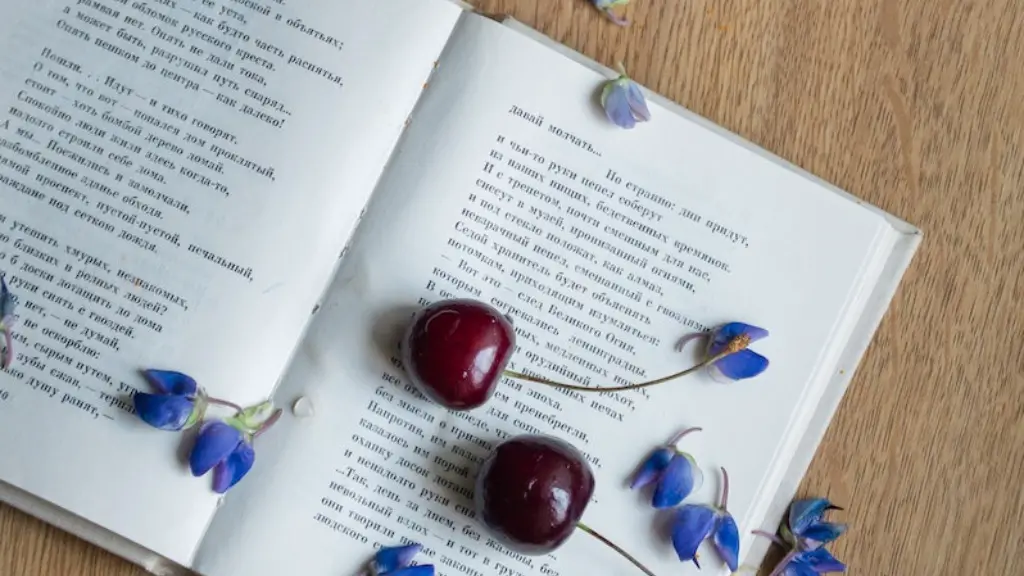History of Poetry Month
April is known as National Poetry Month, a celebration of the written and spoken word that includes recitals, performances, readings and workshops.Though not an official national holiday, the event was created in 1996 by the Academy of American Poets. The Academy of American Poets is the largest organization in the United States advocating on behalf of poets and poetry, and works to increase their visibility in American culture. According to poet and novelist Robin Becker, the holiday was created as a time to “showcase the lives of poets and their work, [and] bring more public attention to the art of poetry, bid poets just right, encourage the reading of poems, and to assist in the teaching of poetry.”
What Purpose Does Poetry Month Serve?
Poetry Month is a great way to spread awareness and appreciation of poetry, both as an art form, and as a vital part of our culture and society. It offers an opportunity to explore and appreciate the works of poets, both famous and lesser-known.It also provides a platform for aspiring writers to rehearse, showcase and develop their work, as well as enabling poets to discuss their literary craft with the general public in schools, colleges, libraries and bookshops.By offering various platforms for poets to share their work and for communities to come together and celebrate poetry, Poetry Month serves as a powerful reminder of how powerful poetry is as an art form.
The Benefits of Poetry
Poetry has many benefits, the most notable of which being its power to evoke emotion and create a platform for self-reflection. Poetry makes us consider different perspectives and encourages us to think more deeply about the world around us. It can also teach us to be more empathetic, tolerant, and understanding of others; values which are perhaps even more important today than ever.Furthermore, poetry can also help to build vocabulary and language skills, as well as fostering a deep love of literature. Additionally, the use of rhyming and poetic conventions like metaphors, similes and personification can help to engage reluctant students, making it a great tool for educators.
How Can We Participate in Poetry Month?
There are a number of ways to take part in and appreciate poetry during April, or any other time of the year. A great place to start is by reading or listening to some classic works of poets from the past and present. Whether it be Shakespeare, Emily Dickinson or modern-day poets like Sonia Sanchez, Maya Angelou and Langston Hughes, there is always something new to explore. Additionally, many libraries and bookstores offer readings, workshops and other events where aspiring poets can learn from experienced authors, or school teachers might invite poets to the classroom to perform their work and engage with the students.
Social Media and Poetry Month
Social media has proved to be a great platform for poets, allowing them to share and spread their work. April is a great time to show your appreciation and support for poets, as during this time many platforms, including Twitter and Instagram, have #NationalPoetryMonth hashtags where people can easily search for, share and participate in the celebrations. It’s also a great way to help promote new and upcoming poets – by simply sharing or retweeting their work, you can help spread their unique talents around the world.
Interpreting and Analyzing Poetry
Interpreting and analyzing poetry can be a daunting task and requires a certain level of dedication and patience. To effectively interpret and analyze poetry, it helps to identify the form, meter and material of the poem as well as any allusions, figurative language, rhyme schemes and other literary devices used. Additionally, it’s important to recognize the context in which the poem was written, such as whether the poet was writing about personal experiences or a particular political or social issue.
Writing Poetry
Writing poetry is an incredibly rewarding and empowering experience. Despite appearing daunting to some, starting out with poetry need not be so daunting at all. There are many different types of poetry with varying levels of complexity, so it helps to choose a particular style or form that appeals to you. Additionally, finding inspiration can also be difficult – a great place to start is by observing your surroundings and thinking about what subject you might want to write about. Finally, it’s important to remember to be creative and have fun with it – although it’s important to take your craft seriously, it doesn’t have to be an arduous process.
Publishing Poetry
For many poets, the goal is to publish their work and get it out into the world. There are various ways of achieving this, from self-publishing to submitting to literary magazines or journals. It’s important to remember to always search for good quality magazines and publishers before submitting, or for poets who prefer to self-publish, there are many websites that enable writers to create, manage and market their own books. Whichever path is taken, publishing poetry can be an incredibly rewarding experience and offers a great opportunity to showcase and share your talents with the world.
The Role of Poetry in Society
Poetry serves many roles in society and has the power to shape the way we think and how we relate to one another. Many poets use their skills to decolonize, empower, inspire and educate their audiences, often voicing their concerns about inequality, injustice and other social crises. Additionally, poetry can be used to help process and relate difficult emotions, such as anger, sadness or grief. Finally, it can also be a source of escapism for when life becomes overwhelming – even a few minutes of being enveloped in a world of poetic imagery can be incredibly soothing and grounding.
Appreciating Other People’s Work
As well as writing poetry of your own, it’s important to show other poets your appreciation and support. This can be done through reading and sharing their works, or recommending them to your peers.Many poets also host open mic nights and other events where they can interact with the public. By attending, you can show your support whilst simultaneously enjoying some great works of art.
The Future of Poetry
As Poetry Month grows, and technology advances, we can look forward to an exciting future for poetry. By embracing technology, poets can use digital platforms to reach more people, resulting in even bigger audiences for their work. Additionally, computer programs and instruments can help to create new and innovative styles of poetry, making the possibilities of expression virtually infinite. Finally,poetry is an exciting and ever-changing art form and the future of the craft, and Poetry Month, remain excitingly unpredictable.


